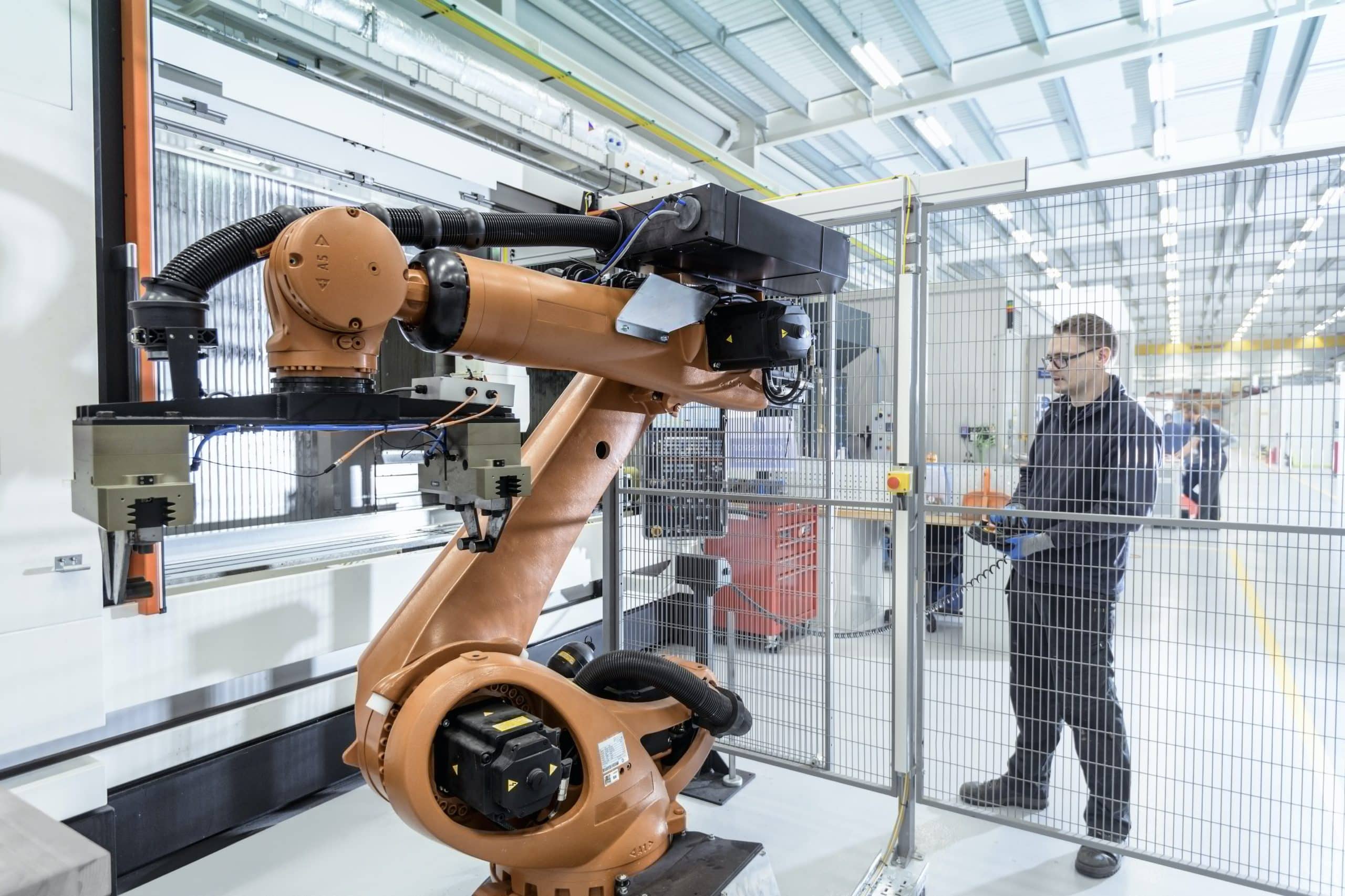In recent years, robotics and artificial intelligence (AI) have become key players in various sectors, including health care. When you combine these technologies, you get innovative solutions to real-world problems. One such innovation that stands as a testament to this convergence is ElliQ, an AI-powered elderly care robot. This article will delve deep into how ElliQ is revolutionizing senior care, offering companionship to aging adults, and providing a comprehensive solution to loneliness, a prevalent problem among seniors.
Meeting ElliQ: The Artificially Intelligent Companion
Before we delve into the heart of the matter, let’s take a moment to meet ElliQ. This robotic companion, developed by Intuition Robotics, is designed to interact with older adults, keep them engaged, and help them stay connected to the world.
Dans le meme genre : What Are the Advantages of Fiber Optic Broadband for UK Rural Areas?
Built with a strong focus on social robotics, ElliQ possesses an intuitive interactive system which allows it to understand and respond to users’ needs and behaviors. It uses an advanced AI system that learns from the data collected about the user’s habits and preferences. This allows ElliQ to adapt its interactions and responses, making it a truly personalized companion for seniors.
The robot’s charming and non-threatening design is another feature that makes it an ideal companion for older adults. Its form is friendly and familiar, making it easier for seniors to embrace this technology.
A voir aussi : What Strategies Can Preserve UK’s Historical Libraries and Archives?
ElliQ in Action: Combating Loneliness and Isolation in Seniors
Loneliness can be a significant issue for seniors, especially those who live alone or are homebound due to health issues. ElliQ steps up to tackle this problem head-on with its plethora of engagement features.
The robot engages seniors in various activities like playing music, suggesting physical exercises, and even initiating chats about general knowledge topics. By offering a variety of engagement options, ElliQ ensures that senior adults never have the chance to feel isolated or lonely.
Moreover, ElliQ also enables video calls, allowing seniors to connect with their family and friends. This not only offers social interaction but also gives peace of mind to the families of the seniors, knowing that they’re not alone and have a companion in ElliQ.
Ensuring Senior Health: ElliQ’s Role in Well-being and Vital Sign Monitoring
As important as social interaction is, the health of seniors is equally crucial. ElliQ takes this into account by offering several features that assist in health maintenance.
The robot reminds users to take their medication on time, a feature that’s extremely beneficial for seniors who are on multiple medications. More than just a reminder, ElliQ can also provide information about the medication, such as what it’s for and the potential side effects.
Additionally, ElliQ is equipped with sensors that can detect if a user has been inactive for a long period or has had a fall. In such instances, it can alert the user’s emergency contacts, making it an invaluable tool for seniors living independently.
The Human Connection: Personalizing Interactions with Intuition Robotics
The key to ElliQ’s success and acceptability among seniors lies in its ability to humanize technology. The creators at Intuition Robotics have made this possible by instilling their creation with an ability to learn and adapt from data generated by the user.
ElliQ does more than just respond to commands. It learns from the interactions, understands the user’s preferences, and tailors its future interactions accordingly. For instance, if a user frequently asks ElliQ to play classical music, the robot will remember this preference and suggest classical music tracks at appropriate times.
This level of personalization is not just confined to music or entertainment choices. ElliQ also adapts its health and wellness suggestions based on the user’s habits. If the robot notices that the user is more active in the mornings, it will suggest doing exercises or taking medication at these times.
The Future of Senior Care: What’s Next for ElliQ and AI
ElliQ represents a significant stride forward in the world of senior care technology. However, it is just the first step towards a future where AI and robotics play an increasingly fundamental role in caring for our aging population.
Developers at Intuition Robotics are constantly working on refining and enhancing ElliQ’s capabilities. Future versions of the robot will likely feature advanced health monitoring systems, deeper learning capabilities, and perhaps even physical assistance features to help seniors with mobility.
Moreover, as the technology becomes more mainstream, we can expect to see a rise in similar AI-powered companions. These robots will not only help seniors lead more enriched lives but also lift some of the caregiving burdens from their families and healthcare workers.
In the end, the goal is to make aging a less daunting process and create a world where seniors can enjoy their golden years with companionship, care, and an enhanced sense of independence.
Utilizing AI for Assisted Living: Additional Applications of Companion Robots
While ElliQ has made a significant impact, it’s only the tip of the iceberg when it comes to AI-powered companion robots for elderly care. Several other robots have been developed aiming to enhance the quality of life for older people. Powered by artificial intelligence, these robots are designed to assist with daily tasks, provide companionship, and monitor health, playing a crucial role in assisted living scenarios.
For example, robots such as Paro and Pepper have also entered the scene, offering different capabilities. Paro, a therapeutic robot designed in Japan, uses biofeedback to respond to the emotions of its users. It’s particularly effective in treating dementia and Alzheimer’s patients. On the other hand, Pepper, developed by SoftBank Robotics, is a humanoid robot that can understand and respond to human emotions, making it an effective companion and service robot.
Moreover, the application of these robots is not limited to individual homes. They are also being employed in various eldercare facilities to enhance the care provided to residents. These technologies are proving to be pivotal in transforming the traditional model of senior care, by providing more personalized and efficient care.
However, with the rise of these robots, there are also ethical considerations to ponder on. Issues such as privacy, user autonomy, and the risk of social isolation due to over-reliance on robots need to be addressed. Studies are ongoing, with findings being regularly published on platforms like PubMed and Google Scholar, to ensure these technologies are developed and used responsibly.
The Impact of Companion Robots on Society: A Conclusion
The advent of AI-powered companion robots like ElliQ marks a significant milestone in elderly care. By offering companionship and assistance, these robots are redefining senior care and making a tangible difference in the lives of older adults.
Through Intuition Robotics and similar companies, we are witnessing the rise of social robots that can interact with humans in a meaningful and personalized way. By learning from user interactions and adapting accordingly, these robots are capable of providing tailored care and companionship, thereby enhancing the quality of life for seniors.
The social impact of these robots extends beyond the seniors they directly serve. They also provide an additional layer of support to caregivers, reducing their stress and workload. Moreover, they offer peace of mind to family members, knowing their loved ones are not alone and have a reliable companion.
Despite the transformative potential of these robots, it’s crucial to remember that they’re tools designed to supplement human care, not replace it. Human interaction and care are irreplaceable, and while these robots can alleviate loneliness and assist with tasks, they cannot offer the warmth, empathy, and emotional support that human companionship provides.
Moving forward, as we continue to harness the power of artificial intelligence and robotics, further advancements are expected in this field. Researchers are continuously exploring ways to enhance the capabilities of these robots. As we find more articles and learn more about their benefits, limitations, and ethical considerations, we can ensure they are used to their fullest potential, augmenting human care and ensuring seniors lead a dignified, independent, and fulfilling life.






